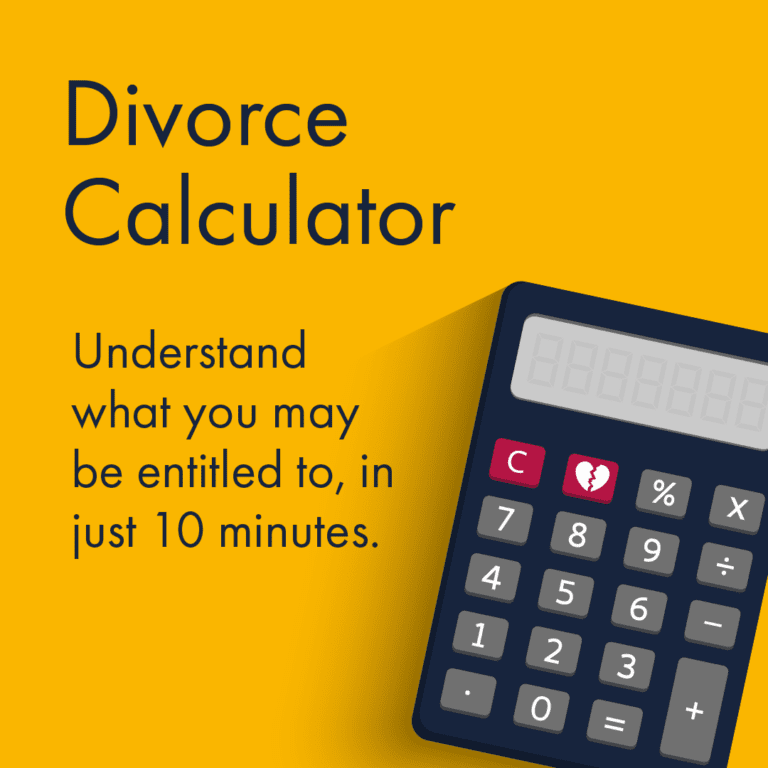What is a prenuptial agreement?
Also known as a ‘prenup’, prenuptial agreements are written contracts that can be entered into by a couple before marriage or a civil union. Offering a certain level of protection, a prenuptial agreement sets out the ownership of belongings (money, assets and property) and what will happen to them if a couple enters into a divorce or civil partnership dissolution.
read moreThough they’re typically associated with the super-wealthy or those in the US, prenuptial agreements are becoming more widely considered in the UK. The cost of living and other financial pressures are prompting more couples to consider the practicalities of marriage, including the finances involved.
Unlike in some states in the US, prenups are not legally binding in England and Wales. Having said this, they are given significant weight by family courts when decisions are being made about a couple’s finances. However, these have to be drafted by a legal expert, such as a prenuptial agreement lawyer.
Depending on your circumstances, creating a prenuptial agreement might feel overwhelming or stressful as there is a lot that needs to be considered. That’s where our prenuptial agreement solicitors can help.
Key divorce finances information
|
What is a prenuptial agreement? |
Also known as ‘prenups’, prenuptial agreements are written contracts that couples can enter before marriage or civil union. The prenup outlines ownership of money, assets, or property and what will happen to them in the case of divorce or dissolution. |
|
How does spousal maintenance work? |
Different to child maintenance, spousal maintenance is a payment from one former spouse to another after divorce. The amount can change at any time and should be decided based on financial needs and income. A divorce lawyer can help you come to an agreement on how much spousal maintenance should be paid out of court. |
|
What is a freezing order? |
Commonly used in divorce or dissolution cases, freezing orders prevent one spouse from disposing of assets until a case is resolved. This protects the other part from missing out on assets they may have matrimonial claim over. |
Our other financial family law services
 Use the calculator
Use the calculator
Why would you need a prenuptial agreement?
Prenuptial agreements are viewed as a form of wealth protection. They allow you to move on with your rightful assets still intact after going through a divorce. You can include several types of wealth in a prenup.
What can be included in a prenuptial agreement?
A prenuptial agreement provides a clear consensus and offers a level of protection for the following:
- Any inheritance or future inheritance, both money and assets
- Assets and/or property that would be very hard to split 50/50
- Any children from a previous relationship to ensure certain assets are reserved for them and protect their inheritance rights – it is also crucial to make a Will
- A business to retain control of
- Any outstanding debt incurred by one side
- By working with an experienced prenuptial agreement solicitor, you can be confident that all bases will be covered, taking a significant amount of stress out of the process.
Meet our prenuptial agreement solicitors
We offer an award-winning service
 Download the guide
Download the guide
Are prenuptial agreements legally binding?
Currently, prenuptial agreements in England and Wales aren’t legally binding. However, assuming one meets the qualifying criteria set by the Supreme Court, it will likely be upheld by the Family Court.
Prenuptial agreements will be considered on a case-by-case basis. A ruling in 2010 by the Supreme Court stated that the courts should take heed of a prenuptial agreement that is freely entered into by each party. In other words, the courts have more of a say in whether the prenup is upheld, taking into account whether it is a fair agreement.
Nuptial agreements are increasingly common and no longer the preserve of celebrities and the super wealthy. They are particularly useful where one spouse has received or is likely to receive significant family gifts or inheritance, or where one of the couple is bringing assets into the marriage, perhaps those that they wish to pass on to their children in the future.
Why choose Stowe Family Law?
As the only national law firm fully dedicated to family matters, our expert team offers professional advice so you can make a fully informed decision about your divorce.
We are proud to be rated ‘Excellent’ on Trustpilot. Check out our reviews to see what our previous clients have said about our service.
We feature in The Legal 500 rankings and are fully authorised and regulated by the Solicitors Regulation Authority (SRA).
We keep you informed. Take a look at our support section, which features a range of helpful guides, focusing on important topics including finances and mediation.
Let's ask Ms T
May I take this opportunity to personally thank you for your support at this difficult time. I very much appreciated your flexibility and responsiveness to such tight turnaround times. I received a thorough, professional yet compassionate service.Let's ask Legal 500
Jemma Slavin is an all-round brilliant lawyer – she is excellent with clients and well-liked by local solicitors as an opponent, not because she is an easy opponent but because she always takes a proportionate and cost-effective approach to cases. Rachel Fisher is a friendly but formidable lawyer who is extremely good for her years of PQE. Joanna… Read more Newton is a brilliant addition to the firm – a truly high-class act.‘Let's ask Legal 500
Claire Cleary provides specialist advice in complex and high net worth cases. Calm, focused and unflappable.Let's ask Legal 500
Hollie Morgan is a stellar solicitor with a calm and friendly approach to her cases. She is extremely organised and has a high technical ability both advising and in advocacy. She specialises in all areas of family law and has experience with complex high value financial matters.’Let's ask Legal 500
They have a singular reputation in high net worth and complex financial remedy cases. Clare Cleary is in her element dealing with complex and high net worth family finance cases. She always strives for the best for her clients whilst giving realistic advice, managing client expectations’.Let's ask Mrs H
I approached Louise to help me with my, divorce, finances and safeguarding issues around my children . Louise was extremely professional, friendly and knowledgeable. She offered me so much support and guidance and was with me every step of the way. It never felt like anything was too much trouble and I always felt reassured. I would highly recomme… Read morend Louise at Stowe family law, if you are looking for a highly professional and superb service then I suggest you instruct Stowe family law to act on your behalf as I am so grateful that I did.Let's ask Mrs G
I have been working with Mira for around 2 years to finalise my divorce financial settlement. It has been a very difficult time for me personally so it proved reassuring to know Stowe and Mira were handling it on my behalf. They have been both professional and prompt in our correspondence and meetings. I would recommend them to friends which I be… Read morelieve is the true measure of a company.Common questions on prenups
Common questions on prenups
-
Why do I need a prenuptial agreement solicitor?
Working with prenup solicitors will mean your agreement can be upheld in court, assuming all other qualifying criteria are met.
You and your partner need to seek separate, independent legal advice before entering into a prenuptial agreement. This is so that you have a clear understanding of what you are committing to, as well as the consequences. It also helps to eliminate the risk of someone being unfairly influenced into signing a prenup.
Not only this, but prenuptial agreement lawyers are there to support you through what can often be a stressful process. Your lawyer will have plenty of experience in this area and will have a good understanding of what you’re going through. We take pride in providing a professional yet empathetic approach. -
How can I increase the chances of a prenuptial agreement being upheld in court?
For a prenuptial agreement to be upheld in English or Welsh family court, it must meet the following criteria:
- Both parties must have obtained independent legal advice
- Both parties must have given complete financial disclosure
- The agreement must be signed at least 21 days before the wedding
- The agreement must be reasonable and fair
- The agreement must beup to date
- The agreement must be drafted by a family lawyer, such as a specialist prenuptial agreementsolicitor
-
What about prenuptial agreements in Scotland?
In Scotland, valid prenups are usually enforceable and legally binding, although this is subject to conditions. For example, neither party should feel pressured into signing the agreement.
-
How are prenuptial agreements different from postnuptial agreements?
Postnuptial agreements work similarly to prenuptial agreements, except they’re used by couples who are already married. It can help to define how assets should be split up if the marriage ends in a divorce.
They’re less common than prenuptial agreements but can be useful if one person in the marriage receives a large sum of money, such as an inheritance. Some couples also seek one if their family and assets are growing and they’d like legal protection.
The same rules apply, where each couple should seek legal advice and a family lawyer should draw up the agreement.
-
What are petnups?
If you and a couple share a pet together, you may want to consider a ‘petnup’. It’s drawn up similarly to a prenuptial agreement and is used to outline who owns the pet if the relationship ends. It covers the ownership, custody, maintenance and more.
These details can also be added as clauses in a prenup or postnup agreement instead of creating a separate petnup.
Many people view pets as family members, which makes things tricky when a couple decides to separate. Seeking help from a family lawyer will help make this prospect less stressful for everyone involved, including your pet. -
When might a cohabitation agreement be more suitable than a prenuptial agreement?
For some couples looking to protect their wealth and assets, a cohabitation agreement might be more suitable. Cohabiting couples don’t have the same legal rights as married couples. You can only claim financial arrangements for children and property ownership.
A cohabitation agreement can offer more protection by stating how existing assets are owned across the partnership. This can be useful if there are any unequal contributions in an owned property for example.
There is little official guidance on cohabitation agreements, especially compared to prenuptial agreements. Seeking help from a family lawyer will mean you receive sound legal advice on the matter, making your agreement more likely to be upheld in court if there are any disputes.
You can read our helpful cohabitation resources to learn more.
Latest advice
Newsletter Sign Up
Sign up for advice on divorce and relationships from our lawyers, divorce coaches and relationship experts.
Privacy Policy





















